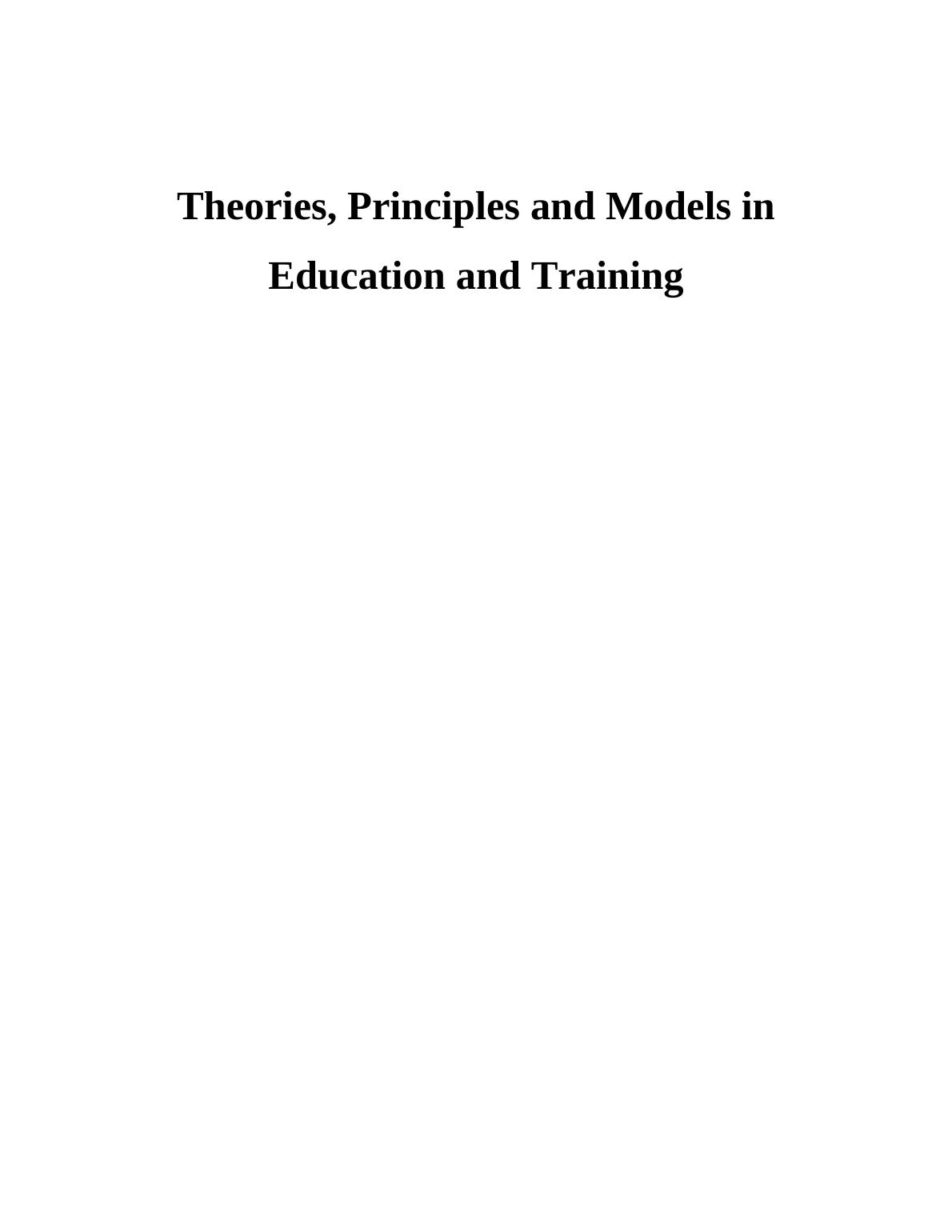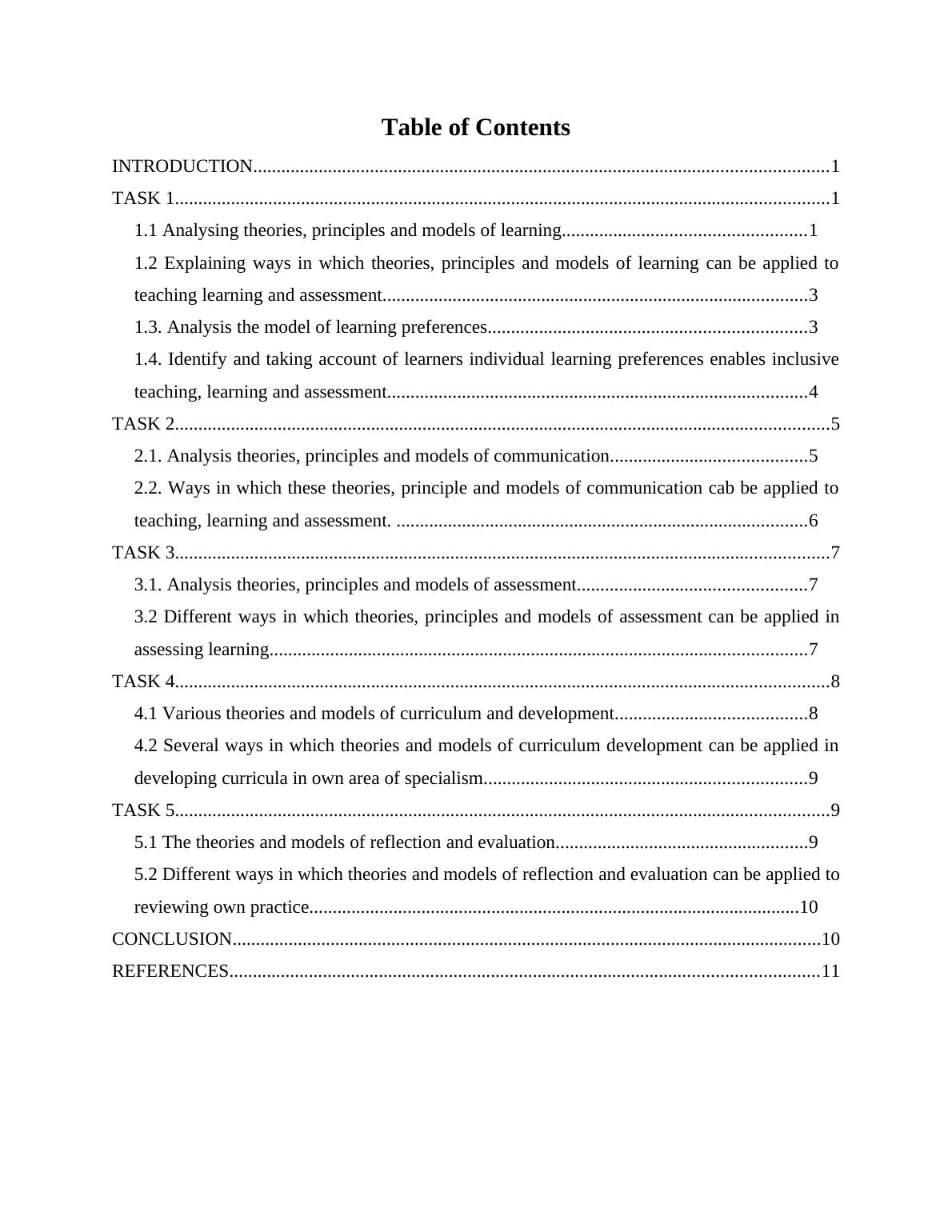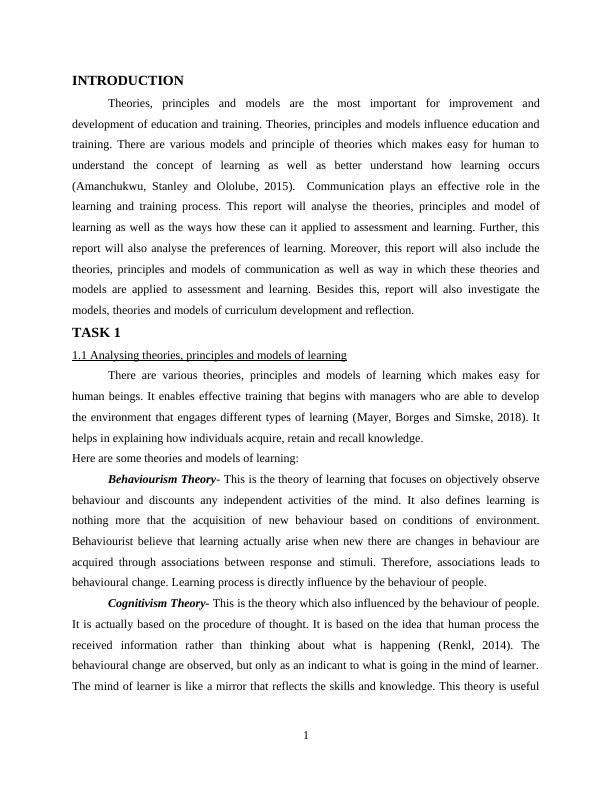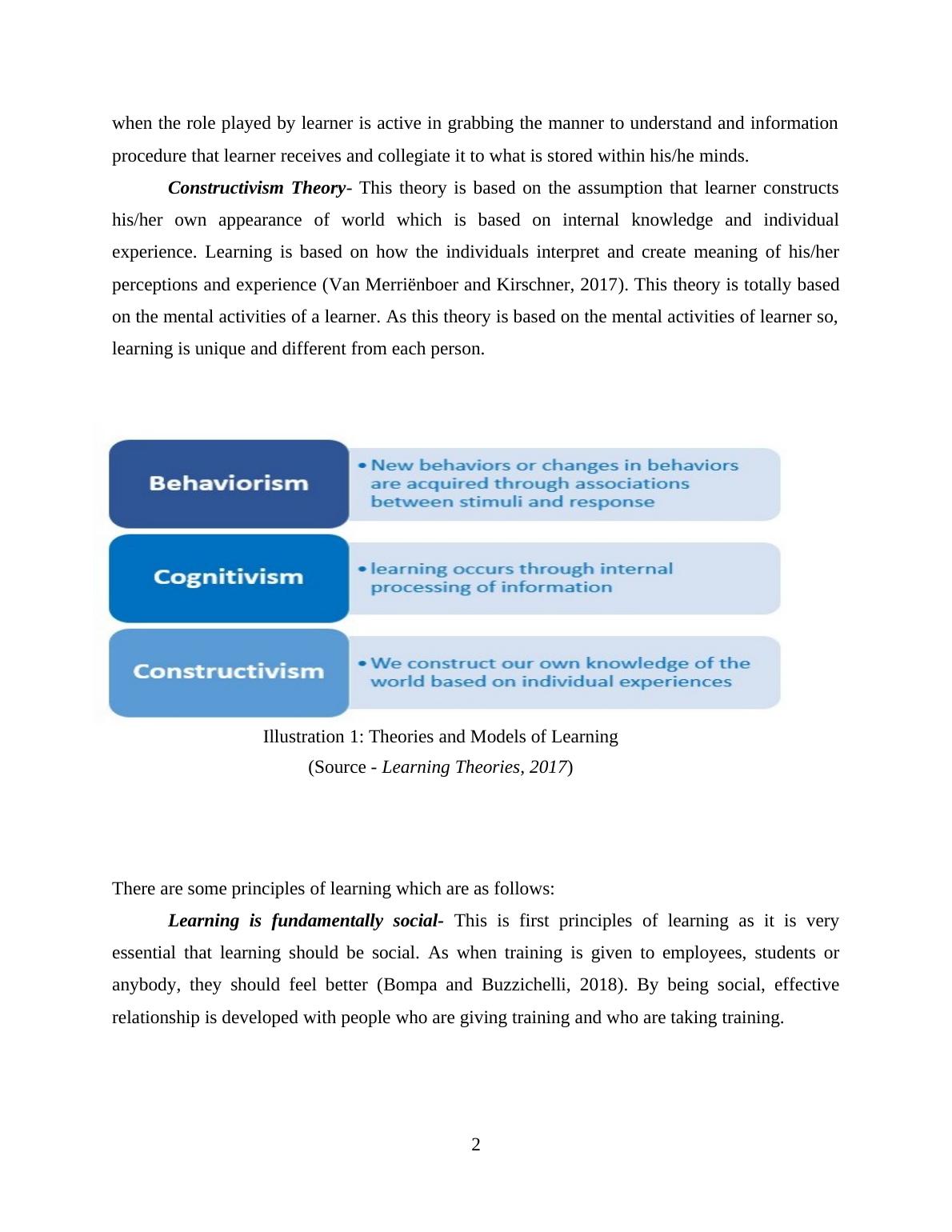Ask a question from expert
Theories, Principles and Models in Education and Training: Assignment
14 Pages4247 Words464 Views
Added on 2020-10-22
About This Document
This report will analyze the theories, principles, and models of learning as well as the ways how these can it applied to assessment and learning. Further, this report will also analyse the preferences of learning. Moreover, this report will also include the theories, principles, and models of communication as well as the way in which these theories and models are applied to assessment and learning. Besides this, the report will also investigate the models, theories, and models of curriculum development and reflection.
Theories, Principles and Models in Education and Training: Assignment
Added on 2020-10-22
BookmarkShareRelated Documents
End of preview
Want to access all the pages? Upload your documents or become a member.
Theories, Principles and Models in Education and Training
|18
|6809
|362
Theories Principles and Models in Education and Training
|14
|3808
|235
Theories, Principles and Models in Education and Training
|18
|5597
|480
Theories, Principles and Models in Education and Training
|20
|6792
|376
Theories, Principles and Models in Education and Training
|22
|7919
|323
Theories, Principles and Models in Education and Training - Desklib
|16
|6489
|253



